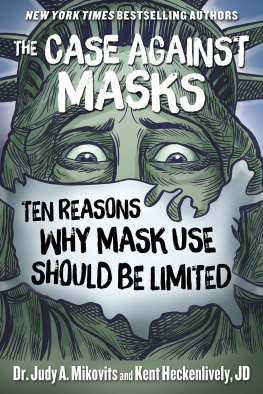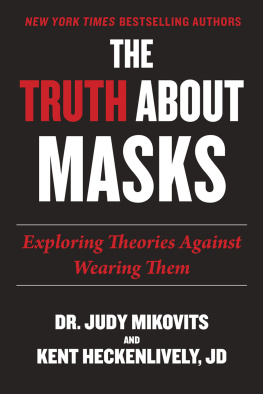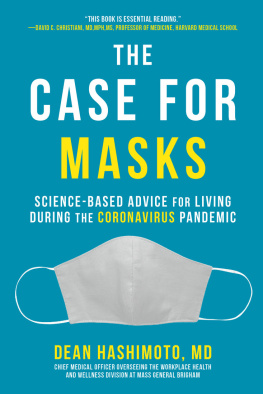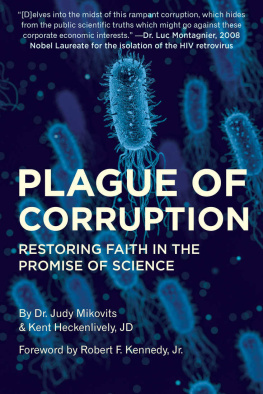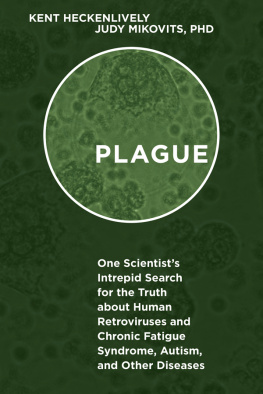Judy Mikovits - The Case Against Masks
Here you can read online Judy Mikovits - The Case Against Masks full text of the book (entire story) in english for free. Download pdf and epub, get meaning, cover and reviews about this ebook. year: 2020, publisher: Skyhorse, genre: Romance novel. Description of the work, (preface) as well as reviews are available. Best literature library LitArk.com created for fans of good reading and offers a wide selection of genres:
Romance novel
Science fiction
Adventure
Detective
Science
History
Home and family
Prose
Art
Politics
Computer
Non-fiction
Religion
Business
Children
Humor
Choose a favorite category and find really read worthwhile books. Enjoy immersion in the world of imagination, feel the emotions of the characters or learn something new for yourself, make an fascinating discovery.
- Book:The Case Against Masks
- Author:
- Publisher:Skyhorse
- Genre:
- Year:2020
- Rating:5 / 5
- Favourites:Add to favourites
- Your mark:
- 100
- 1
- 2
- 3
- 4
- 5
The Case Against Masks: summary, description and annotation
We offer to read an annotation, description, summary or preface (depends on what the author of the book "The Case Against Masks" wrote himself). If you haven't found the necessary information about the book — write in the comments, we will try to find it.
The Case Against Masks — read online for free the complete book (whole text) full work
Below is the text of the book, divided by pages. System saving the place of the last page read, allows you to conveniently read the book "The Case Against Masks" online for free, without having to search again every time where you left off. Put a bookmark, and you can go to the page where you finished reading at any time.
Font size:
Interval:
Bookmark:

THE CASE AGAINST MASKS
Ten Reasons Why Mask Use Should be Limited
By Dr. Judy A. Mikovits and Kent Heckenlively, JD

Skyhorse Publishing
Its not my intention to make fun of these people. The information we get is so confusing and contradictory that we collectively shrug and say, Well, better safe than sorry, and put on a mask before heading out the door. Or maybe you even wear it while inside your house, sitting down to watch television with your family.
Suddenly, the world has become a very terrifying place.
However, I dont believe you make the best decisions when youre scared. The reasoning part of your brain becomes overwhelmed with fear and takes action that, when later considered, seems illogical. Before you get too far into this book, I want you to make a conscious effort to reduce your fear level. If that means you are sitting alone in your bedroom and wearing a mask as you read, terrified of the viral particles you imagine that may be floating unseen around you, then keep that mask on. I doubt you will be wearing it when you finish this book.
I want you to calmly and rationally look at the evidence and arguments in this book and come to your own conclusions.
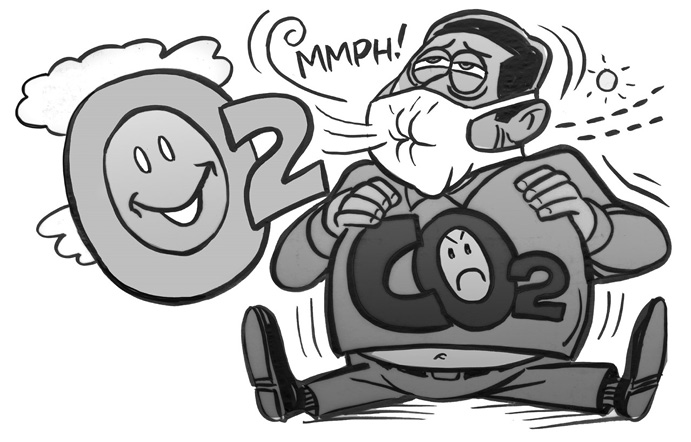
By contrast, oxygen makes up only 20.9 percent of our atmosphere and its where the action is with biological organisms. Carbon is also another important element when it comes to creating chemical reactions.
Any science textbook you pick up will tell you that humans need oxygen and give off carbon dioxide as a waste product. If you ever find yourself in a hospital, the nurses may put a blood oximeter on your finger and tell you if your blood oxygen levels are between 95100 percent youre doing great. If your levels get below 90 percent theyll probably need to take action. Low oxygen levels can be caused by pneumonia, emphysema, smoking, and various heart conditions.
How is it that, while oxygen only makes up 20.9 percent of our atmosphere, its found at such high concentrations in our blood? The answer is were oxygen hogs. We desperately need it to power all the chemical and biological reactions necessary for our continued existence and good health. While the world record for holding your breath under water is eleven minutes and thirty-five seconds, its generally agreed that the average human being will start having trouble if deprived of oxygen for three minutes.
And what about carbon dioxide? It makes up only 0.04 percent of our atmosphere. How much carbon dioxide is in the breath we exhale?
When inhaling, humans take in approximately 21 percent oxygen, 0.04 percent carbon dioxide and 79 percent nitrogen. On exhalation, humans give off approximately 16 percent oxygen, 4 percent carbon dioxide and 79 percent nitrogen, according to the BBC; only the amount of nitrogen remains constant in the exchange.
OSHA regulations state, An oxygen deficient atmosphere is an atmosphere that contains less than 19.5 [percent] oxygen, which can cause death. When its coming out of your mouth, the oxygen level is at 16 percent. Is it a good idea to rebreathe the air youve already exhaled, as inevitably happens in even a cloth mask? Its got lower amounts of oxygen and approximately a hundred times the amount of carbon dioxide.
At what level does carbon dioxide start to become a problem? According to Claire Gillespie, writing at Health.com , It is dangerous in an atmosphere when it is greater than 10[percent].
But isnt the purpose of the mask to control air flow? Isnt that what were told by people who are supposed to know? Dont we have the innate sense that in order to be effective, the mask must fit tightly, or else what protection does it provide?
In her article, Gillespie references the National Institutes of Health and their warnings about carbon dioxide levels:
They say that inhaling high levels of carbon dioxide (CO2) may be life-threatening. Hypercapnia (carbon dioxide toxicity) can also cause headache, vertigo, double-vision, an inability to concentrate, tinnitus (hearing a noise, like a ringing or buzzing, thats not caused by an outside source), seizures, or suffocation due to displacement of air.
These considerations were detailed in a long letter from four researchers from University College London and published in the British Medical Journal in April 2020. Two of their concerns are relevant to our discussion:
Face masks make breathing more difficult. For people with COPD, face masks are in fact intolerable to wear as they worsen their breathlessness. Moreover, a fraction of carbon dioxide previously exhaled is inhaled at each respiratory cycle. Those two phenomena increase breathing frequency and deepness, and hence they may increase the amount of inhaled and exhaled air. This may worsen the burden of [COVID]-19 if infected people wearing masks spread more contaminated air. This may also worsen the clinical condition of infected people if the enhanced breathing pushes the viral load down into their lungs.
One part of the mask equation is they do restrict air flow, and that can never be a result if we want to maintain optimum immune function. But there are other factors which must be considered and may be even more important than restricting air flow:
Font size:
Interval:
Bookmark:
Similar books «The Case Against Masks»
Look at similar books to The Case Against Masks. We have selected literature similar in name and meaning in the hope of providing readers with more options to find new, interesting, not yet read works.
Discussion, reviews of the book The Case Against Masks and just readers' own opinions. Leave your comments, write what you think about the work, its meaning or the main characters. Specify what exactly you liked and what you didn't like, and why you think so.

